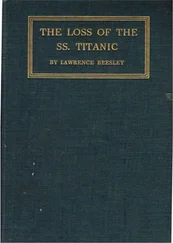Theodore Dreiser - The Titan
Здесь есть возможность читать онлайн «Theodore Dreiser - The Titan» весь текст электронной книги совершенно бесплатно (целиком полную версию без сокращений). В некоторых случаях можно слушать аудио, скачать через торрент в формате fb2 и присутствует краткое содержание. Жанр: Классическая проза, на английском языке. Описание произведения, (предисловие) а так же отзывы посетителей доступны на портале библиотеки ЛибКат.
- Название:The Titan
- Автор:
- Жанр:
- Год:неизвестен
- ISBN:нет данных
- Рейтинг книги:5 / 5. Голосов: 1
-
Избранное:Добавить в избранное
- Отзывы:
-
Ваша оценка:
- 100
- 1
- 2
- 3
- 4
- 5
The Titan: краткое содержание, описание и аннотация
Предлагаем к чтению аннотацию, описание, краткое содержание или предисловие (зависит от того, что написал сам автор книги «The Titan»). Если вы не нашли необходимую информацию о книге — напишите в комментариях, мы постараемся отыскать её.
The Titan — читать онлайн бесплатно полную книгу (весь текст) целиком
Ниже представлен текст книги, разбитый по страницам. Система сохранения места последней прочитанной страницы, позволяет с удобством читать онлайн бесплатно книгу «The Titan», без необходимости каждый раз заново искать на чём Вы остановились. Поставьте закладку, и сможете в любой момент перейти на страницу, на которой закончили чтение.
Интервал:
Закладка:
“I don’t contemplate losing,” he remarked, coolly. “Whatever happens, I’ll have enough to live on. I’m a little tired of contest.”
He smiled, but Berenice saw that the thought of defeat was a gray one. With victory was his heart, and only there. Owing to the national publicity being given to Cowperwood’s affairs at this time the effect upon Berenice of these conversations with him was considerable. At the same time another and somewhat sinister influence was working in his favor. By slow degrees she and her mother were coming to learn that the ultra-conservatives of society were no longer willing to accept them. Berenice had become at last too individual a figure to be overlooked. At an important luncheon given by the Harris Haggertys, some five months after the Beales Chadsey affair, she had been pointed out to Mrs. Haggerty by a visiting guest from Cincinnati as some one with whom rumor was concerning itself. Mrs. Haggerty wrote to friends in Louisville for information, and received it. Shortly after, at the coming-out party of a certain Geraldine Borga, Berenice, who had been her sister’s schoolmate, was curiously omitted. She took sharp note of that. Subsequently the Haggertys failed to include her, as they had always done before, in their generous summer invitations. This was true also of the Lanman Zeiglers and the Lucas Demmigs. No direct affront was offered; she was simply no longer invited. Also one morning she read in the Tribune that Mrs. Corscaden Batjer had sailed for Italy. No word of this had been sent to Berenice. Yet Mrs. Batjer was supposedly one of her best friends. A hint to some is of more avail than an open statement to others. Berenice knew quite well in which direction the tide was setting.
True, there were a number—the ultra-smart of the smart world—who protested. Mrs. Patrick Gilbennin, for instance: “No! You don’t tell me? What a shame! Well, I like Bevy and shall always like her. She’s clever, and she can come here just as long as she chooses. It isn’t her fault. She’s a lady at heart and always will be. Life is so cruel.” Mrs. Augustus Tabreez: “Is that really true? I can’t believe it. Just the same, she’s too charming to be dropped. I for one propose to ignore these rumors just as long as I dare. She can come here if she can’t go anywhere else.” Mrs. Pennington Drury: “That of Bevy Fleming! Who says so? I don’t believe it. I like her anyhow. The idea of the Haggertys cutting her—dull fools! Well, she can be my guest, the dear thing, as long as she pleases. As though her mother’s career really affected her!”
Nevertheless, in the world of the dull rich—those who hold their own by might of possession, conformity, owl-eyed sobriety, and ignorance—Bevy Fleming had become persona non grata. How did she take all this? With that air of superior consciousness which knows that no shift of outer material ill-fortune can detract one jot from an inward mental superiority. The truly individual know themselves from the beginning and rarely, if ever, doubt. Life may play fast and loose about them, running like a racing, destructive tide in and out, but they themselves are like a rock, still, serene, unmoved. Bevy Fleming felt herself to be so immensely superior to anything of which she was a part that she could afford to hold her head high even now. Just the same, in order to remedy the situation she now looked about her with an eye single to a possible satisfactory marriage. Braxmar had gone for good. He was somewhere in the East—in China, she heard—his infatuation for her apparently dead. Kilmer Duelma was gone also—snapped up—an acquisition on the part of one of those families who did not now receive her. However, in the drawing-rooms where she still appeared—and what were they but marriage markets?—one or two affairs did spring up—tentative approachments on the part of scions of wealth. They were destined to prove abortive. One of these youths, Pedro Ricer Marcado, a Brazilian, educated at Oxford, promised much for sincerity and feeling until he learned that Berenice was poor in her own right—and what else? Some one had whispered something in his ear. Again there was a certain William Drake Bowdoin, the son of a famous old family, who lived on the north side of Washington Square. After a ball, a morning musicale, and one other affair at which they met Bowdoin took Berenice to see his mother and sister, who were charmed. “Oh, you serene divinity!” he said to her, ecstatically, one day. “Won’t you marry me?” Bevy looked at him and wondered. “Let us wait just a little longer, my dear,” she counseled. “I want you to be sure that you really love me.” Shortly thereafter, meeting an old classmate at a club, Bowdoin was greeted as follows:
“Look here, Bowdoin. You’re a friend of mine. I see you with that Miss Fleming. Now, I don’t know how far things have gone, and I don’t want to intrude, but are you sure you are aware of all the aspects of the case?”
“What do you mean?” demanded Bowdoin. “I want you to speak out.”
“Oh, pardon, old man. No offense, really. You know me. I couldn’t. College—and all that. Just this, though, before you go any further. Inquire about. You may hear things. If they’re true you ought to know. If not, the talking ought to stop. If I’m wrong call on me for amends. I hear talk, I tell you. Best intentions in the world, old man. I do assure you.”
More inquiries. The tongues of jealousy and envy. Mr. Bowdoin was sure to inherit three million dollars. Then a very necessary trip to somewhere, and Berenice stared at herself in the glass. What was it? What were people saying, if anything? This was strange. Well, she was young and beautiful. There were others. Still, she might have come to love Bowdoin. He was so airy, artistic in an unconscious way. Really, she had thought better of him.
The effect of all this was not wholly depressing. Enigmatic, disdainful, with a touch of melancholy and a world of gaiety and courage, Berenice heard at times behind joy the hollow echo of unreality. Here was a ticklish business, this living. For want of light and air the finest flowers might die. Her mother’s error was not so inexplicable now. By it had she not, after all, preserved herself and her family to a certain phase of social superiority? Beauty was of such substance as dreams are made of, and as fleeting. Not one’s self alone—one’s inmost worth, the splendor of one’s dreams—but other things—name, wealth, the presence or absence of rumor, and of accident—were important. Berenice’s lip curled. But life could be lived. One could lie to the world. Youth is optimistic, and Berenice, in spite of her splendid mind, was so young. She saw life as a game, a good chance, that could be played in many ways. Cowperwood’s theory of things began to appeal to her. One must create one’s own career, carve it out, or remain horribly dull or bored, dragged along at the chariot wheels of others. If society was so finicky, if men were so dull—well, there was one thing she could do. She must have life, life—and money would help some to that end.
Besides, Cowperwood by degrees was becoming attractive to her; he really was. He was so much better than most of the others, so very powerful. She was preternaturally gay, as one who says, “Victory shall be mine anyhow.”
Chapter LXI.
The Cataclysm
And now at last Chicago is really facing the thing which it has most feared. A giant monopoly is really reaching out to enfold it with an octopus-like grip. And Cowperwood is its eyes, its tentacles, its force! Embedded in the giant strength and good will of Haeckelheimer, Gotloeb & Co., he is like a monument based on a rock of great strength. A fifty-year franchise, to be delivered to him by a majority of forty-eight out of a total of sixty-eight aldermen (in case the ordinance has to be passed over the mayor’s veto), is all that now stands between him and the realization of his dreams. What a triumph for his iron policy of courage in the face of all obstacles! What a tribute to his ability not to flinch in the face of storm and stress! Other men might have abandoned the game long before, but not he. What a splendid windfall of chance that the money element should of its own accord take fright at the Chicago idea of the municipalization of public privilege and should hand him this giant South Side system as a reward for his stern opposition to fol-de-rol theories.
Читать дальшеИнтервал:
Закладка:
Похожие книги на «The Titan»
Представляем Вашему вниманию похожие книги на «The Titan» списком для выбора. Мы отобрали схожую по названию и смыслу литературу в надежде предоставить читателям больше вариантов отыскать новые, интересные, ещё непрочитанные произведения.
Обсуждение, отзывы о книге «The Titan» и просто собственные мнения читателей. Оставьте ваши комментарии, напишите, что Вы думаете о произведении, его смысле или главных героях. Укажите что конкретно понравилось, а что нет, и почему Вы так считаете.










